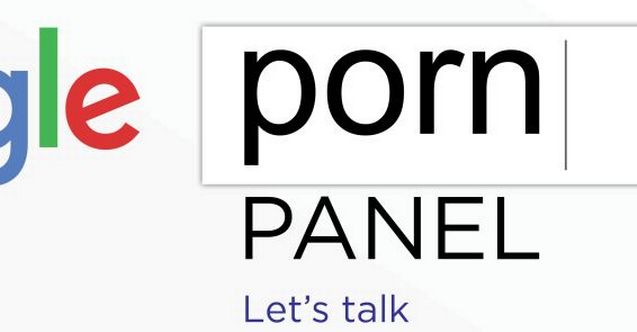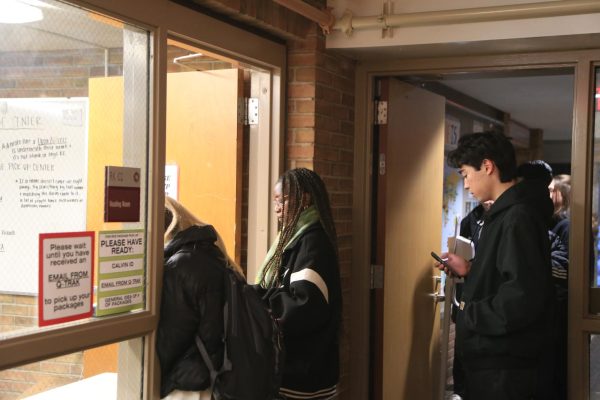Porn panel seeks to remove stigma of discussing sex
Porn is a trap that one can be freed from, according to panelists at a discussion held Monday night in the Meeter Center Lecture Hall. Four senior male students who are taking steps to be free from using pornography shared their stories with a crowd of about 20 students. The panel was hosted by Keith Louwerse, facilitator of the Step One groups in the Center for Counseling and Wellness, and sponsored by the Sexuality Series, among other campus groups.
Freedom from pornography, emphasized Louwerse and the student panelists, is about following God’s vision instead of a distorted vision.
According to one student, his interest in porn began in the fourth grade, and it was something that was easy to hide. For a long time, he thought, “It’s not hurting anybody … it’s not hurting me.” But this changed when he heard from a camp counselor that pornography was not a victimless crime since the industry actively exploits vulnerable people to perform the graphic acts that appear on-screen.
He decided to join an accountability group in high school, but because the people there were further along in their progress to stay away from porn, he soon began lying to the guys about his own progress so as not to feel excluded. Still, he appreciated being able to talk about his feelings openly as a young man, which he felt was a rare opportunity for men in general.
Although his first accountability group did not work out for him, he joined the Step One group when he came to Calvin and found it to be helpful. The Step One group has two meetings a week. At first, he only went once a week, but soon decided to go to both in order to hold himself more accountable.
“For me, my future spouse, my relationship with God … this is something important to me,” he said.
Another student spoke about an addiction to a romantic fantasy. Though it was less sexual and not pornographic in nature, it has continued to stick with him since it began at age four. He shared that, owing to the fantasy and relationships that ended, he continued to feel depressed despite pursuing activities that once would have given him joy.
“I’m still dealing with this romantic fantasy, but I’m doing better and better about it,” he told the crowd.
Louwerse noted that many students were struggling with similar stories. After sharing their stories, the panelists also answered some questions they had been asked before and took questions from the audience written on slips of paper.
One question asked whether porn could improve an intimate relationship. All of them said no, and one of the students shared that, when he started dating, “I had no idea what a normal relationship looked like. I had been feeding myself this distorted view for the past dozen years.”
Another stated that after he started dating, “I learned a lot about how relationships aren’t built on the physical. They’re built on the emotional, the mundane.”
Another question asked if porn gave its users a head start in learning about sex. Again, the panelists responded in the negative, saying that porn brings shame and forms a wall between a person and their partner due to the neural shortcut to enjoyment that it causes in the brain. An addiction to porn is similar to addiction to other substances like alcohol, caffeine or cocaine, they said. Though it brings brief fulfillment, it can leave you feeling down, causing a reliance that you become latched onto. After a while, the tamer amounts are not sustaining enough, and “you start looking for more novel content, stretching the limits of what is normal and acceptable,” one student described. A panelist stated that he saw his porn use becoming an addiction when he could not control himself.
You should talk with your significant other about porn, the students said, whether you are struggling with it or you are asking whether they do. Though they advise against having your romantic partner be your accountability partner, they believe it is important to be honest about where both people in the relationship are at, and that the topic should definitely come up before marriage.
Another question asked whether Christians should date porn users. A panelist answered that, as long as the person was trying to stop, it could be considered.
“If you’re brave enough to be honest, you’ve got something there,” Louwerse added. “When you’re in a real relationship, it’s harder to objectify or degrade a person.”
Louwerse noted that many guys have been exposed to porn, and that in years past, there have been female panelists sharing at this event as well. Julia Smith, director of the Sexuality Series, also noted that porn was not exclusively a male problem, and that women are actively recruited for the industry.
Conversely, those addicted to porn should discern for themselves whether they should date. On one hand, the porn addiction might disrupt the relationship, but on the other hand, if an avoidance of dating causes social withdrawal, it may be more harmful than good, as one panelist explained. The panelist shared that he had held back on his own baptism for a long time because of this issue, but his pastor had told him, “You don’t clean yourself up and then go to God. You go to God and then he cleans you up.”
Louwerse added that, though there is often a stigma in talking about sex in Christian circles, “God is the author of sex.” Parents need to make sex a positively acceptable topic to talk about, he said, and the panelists added that they wished their parents had been more open with them about it as well. A panelist cautioned that porn addicts are tech-smart and that with the rise of the internet, kids are learning about porn earlier than before. It is important for parents to talk with young children about porn, he said, because “kids will find out one way or another.”
For those currently fighting porn in their own lives, the panelists recommend sharing only what you are comfortable with to peers and family, being aware of what you are getting into and deciding who is worthy to hear your story. However, it can be helpful and feel more freeing to share your story with trusted people, they said. It is also helpful to find substitute activities to combat the impulse towards porn based on mood, such as exercising when craving dopamine, taking a nap when tired or finding a friend when trying to escape loneliness, anger or stress.
To help people you know struggling with porn, the panelists suggest being honest with yourself and others, encouraging accountability groups and giving space to fail. Louwerse also shared a list of practical steps for overcoming porn addiction, which included speaking with a professional therapist trained in addictions and sexual disorders, participating in a support group, throwing out physical and digital porn material, orienting one’s home/work computer so others can see the screen and displaying inspirational photos around it, such as images of loved ones.







